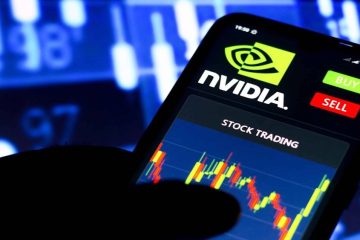Investors seek immediate profitability

Elon Musk received the market’s communication. Mark Zuckerberg was absent. Cathie Wood disregarded it. The message advises to shift the focus from ambitious goals to prioritizing financial gain.
The events of last week highlighted a fundamental understanding that any capable CEO should already possess regarding investor preferences. Specifically, Tesla shares experienced a significant 12% increase with underwhelming first-quarter data, whereas Meta Platforms shares suffered a substantial 11% decline despite delivering satisfactory first-quarter results.
Tesla responded to investor demands by abandoning its ambitions for a completely new automobile platform in order to expedite the release of a range of more affordable models. Indeed, CEO Musk emphasized that only individuals who genuinely believe in the concept of self-driving cars, a technology he has been promoting for a considerable period of time without successfully implementing, should be eligible to become shareholders. However, investors were willing to overlook the idealism and focus on the practical and cost-effective launch plans, which are expected to decrease the company’s capital expenditure requirements.
Meta acted in a contrary manner. The sales in the first quarter exceeded expectations slightly, which is typically indicative of a positive outcome. However, investors who became anxious in 2022 because to Zuckerberg’s propensity for extravagant spending, which caused Meta to change its direction and reduce its workforce, were once again unsettled by its intention to invest billions of dollars on artificial intelligence, despite projecting lower-than-anticipated sales for the current quarter.
Indeed, the gains and losses following the release of Tesla’s and Meta’s data were magnified due to the fact that they marked a reversal of the significant movements observed earlier this year, with Tesla seeing a 40% decline and Meta enjoying a 40% surge.
Despite ongoing investments in AI, Microsoft and Alphabet, the parent company of Google, have seen positive market performance, indicating that the market has not turned against corporate investment in general.
Investors are seeking a clear path to generate a profit from the corporate funds invested in new projects, which both Microsoft and Alphabet are offering through improved profit margins. The previous strategy of aggressively investing in technology, which was widely embraced by the market until 2022, now guarantees a significant decline in the company’s stock value.
This is particularly evident at Cathie Wood’s ARK Invest and its Ark Innovation ETF. The ETF’s collection of what Wood refers to as disruptive innovators has done poorly as investors have insisted that their holdings should possess a distinct pathway to generating profits.
The shift in investor mentality is attributed to changes in bond yields. The influx of funds into speculative investments with uncertain returns, which may not yield any profits for several years or perhaps at all, was far more tolerable when interest rates were close to zero compared to the current scenario where investing in Treasury bonds may generate a return of about 5%. The significance of the link becomes evident in ARKK’s correlation with Treasury yields. Lately, the ETF has exhibited a robust inclination to decline when Treasury yields increase, as they have done in the current year, and to increase when they decrease, as they did in the previous autumn. The Exchange-Traded Fund (ETF) has experienced a decline of 16% in its value during the course of this year.
The largest stocks are primarily shielded from increasing interest rates due to their substantial cash reserves and long-term fixed-rate bonds. That contrasts with the companies that ARKK typically invests in.
The emerging investor mentality is also evident in the strong correlation between the stock prices of major technology companies and the market’s expectations for their earnings. The primary reason for the fluctuations in the stock prices of the prominent companies, namely Microsoft, Apple, Nvidia, Alphabet, Amazon, Meta, and Tesla, can be attributed to the revised projections of their anticipated earnings for the upcoming year. The individuals who experienced the most significant increases in projected profits were primarily associated with Nvidia, whereas Tesla suffered the most substantial decline in profit predictions.
Alphabet’s choice to initiate dividend payments may also be driven by investors’ inclination for immediate financial gains. Furthermore, in the case where the alternative is a significant cash return on Treasury bonds, a stock that does not offer dividends necessitates a greater level of confidence in the success of its investments compared to when interest rates were very low.
Corporate strategy remains significant, without a doubt. Nvidia’s shares outperformed even the one-third increase in earnings estimates due to the anticipation of future demand for its chips in the field of artificial intelligence. Despite the minor increase in earnings projections for Apple, its shares experienced a significant decline as investors became aware of the strategic issue the company faces in China. Tesla’s stock saw a decline that exceeded expectations for results, despite a recent increase, due to a decrease in demand for electric vehicles (EVs) and a shift towards more affordable hybrid vehicles.
CEOs may attempt to oppose the emerging investor philosophy of demonstrating tangible financial returns. However, in the event that they do, it is highly probable that the share price will experience a decline.
Ray Pierce
Ray Pierce is a Senior Market Analyst. He has been covering Asian stock markets for many years.








